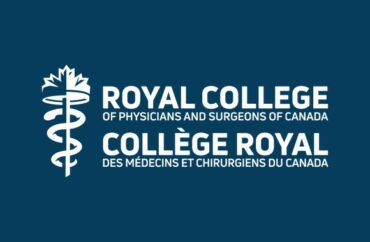
‘It will lead to worse care for patients,’ create doctors who ‘care more about ideology’ than patients: watchdog group
A draft report from the Royal College of Physicians and Surgeons in Canada that recommends medical schools focus more on “anti-racism” and “oppression” is causing an uproar among many in the medical community.
The proposed alterations to CanMEDS, the framework that shapes medical education in Canada, came from an interim report by the college’s Anti-Racism Expert Working Group, published in late November on X. CanMEDs standards are set to be updated in 2025.
The report calls for “de-centering medical expertise” in favor of topics such as “decolonization,” “social justice,” and “inclusive compassion.”
“By challenging the status quo and embracing courageous actions and bold leadership, we can build a healthcare system that actively combats systemic inequities and promotes social justice rather than further perpetuating systems of oppression,” the report states.
The proposal has alarmed a number of prominent physicians, academics, and medical organizations.
“I worry for the profession,” Dr. Roy Eappen, senior fellow with the medical watchdog group Do No Harm, told The College Fix when asked about the report.
“It will put less competent professionals who will care more about ideology than patient centered care. It will lead to worse care for patients across Canada,” Eappen told The Fix.
Do No Harm launched a petition in opposition to the proposal, and almost 300 Canadian health care professionals have signed it so far, according to the organization.
“There has been a lot of negative feedback both from average physicians and academia. I have personally heard from physician specialist friends across Canada in academia and otherwise, that these proposals must be shelved,” Eappen told The Fix. “Clinical excellence should always be the goal of medical education. These changes suggest that activism trumps clinical excellence, compassion, and scholarship.”
The Royal College did not respond to The Fix’s questions about the report but directed it to a Dec. 4 statement from its CEO Dr. Ian Bowmer who said they received a “significant number of responses” to the proposal.
“Some of the online discussions seemed to suggest that the ideas expressed in these supporting documents were the proposed adaptations” by the Royal College and its partner organizations, Bowmer said in the statement. “Rather, the documents were made available to solicit input and varied perspectives into evolving the future framework.”
But the draft report came from one of several expert working groups established by the Royal College to update CanMEDS. The working group envisions a new Canadian medical system that prioritizes “bidirectional relationships with patients, providers, communities, the land, the health system and society at large rather than the individual physician as a gatekeeper of professionalized knowledge.”
“With this new model, we can reflect a stance of humility over hubris.”
In his statement, Bowmer said the CanMEDS updates will “closely align” with the Royal College’s strategic plan, which includes “indigenous health, anti-racism, equity, diversity and inclusion” as well as “planetary health and sustainable healthcare.”
But other prominent physicians and academics, including Concordia University professor and author Gad Saad, disagree with the new ideological focus.
Dr. David Jacobs, president of the Ontario Association of Radiologists, spoke out against the draft report in a December post on X, saying some medical schools already include more “social justice training” than practical medical skills.
On this schedule from a Canadian medical school, there are 2 hrs of EITHER Anatomy or Clinical Skills for every 6 hrs of Self, Society, and Social Accountability.
The Royal College wants your thoughts on a proposal to INCREASE social justice training.👇https://t.co/713FyuXYs4 pic.twitter.com/sGX2qeyDic
— David Jacobs (@DrJacobsRad) December 5, 2023
Jacobs also provided a link for Canadians to comment to the Royal College on the CanMEDs proposals. The comment period is now closed. The Fix attempted to contact Jacobs twice in the past month through the association, but did not receive a response.
Meanwhile, Bowmer said in his statement that the Royal College, along with the Association of Faculties of Medicine of Canada, the Collège des médecins du Québec, and the College of Family Physicians of Canada, which also are working on the CanMEDS updates – will continue to accept and consider feedback.
Bowmer said they plan to seek public comment again when they publish a final draft in 2025 because “dialogue and feedback are both critical to the evolution of the CanMEDS Framework.”
MORE: UMichigan funds research on ‘anti-racist’ health departments
IMAGE: Royal College of Physicians and Surgeons of Canada/Facebook





Please join the conversation about our stories on Facebook, Twitter, Instagram, Reddit, MeWe, Rumble, Gab, Minds and Gettr.